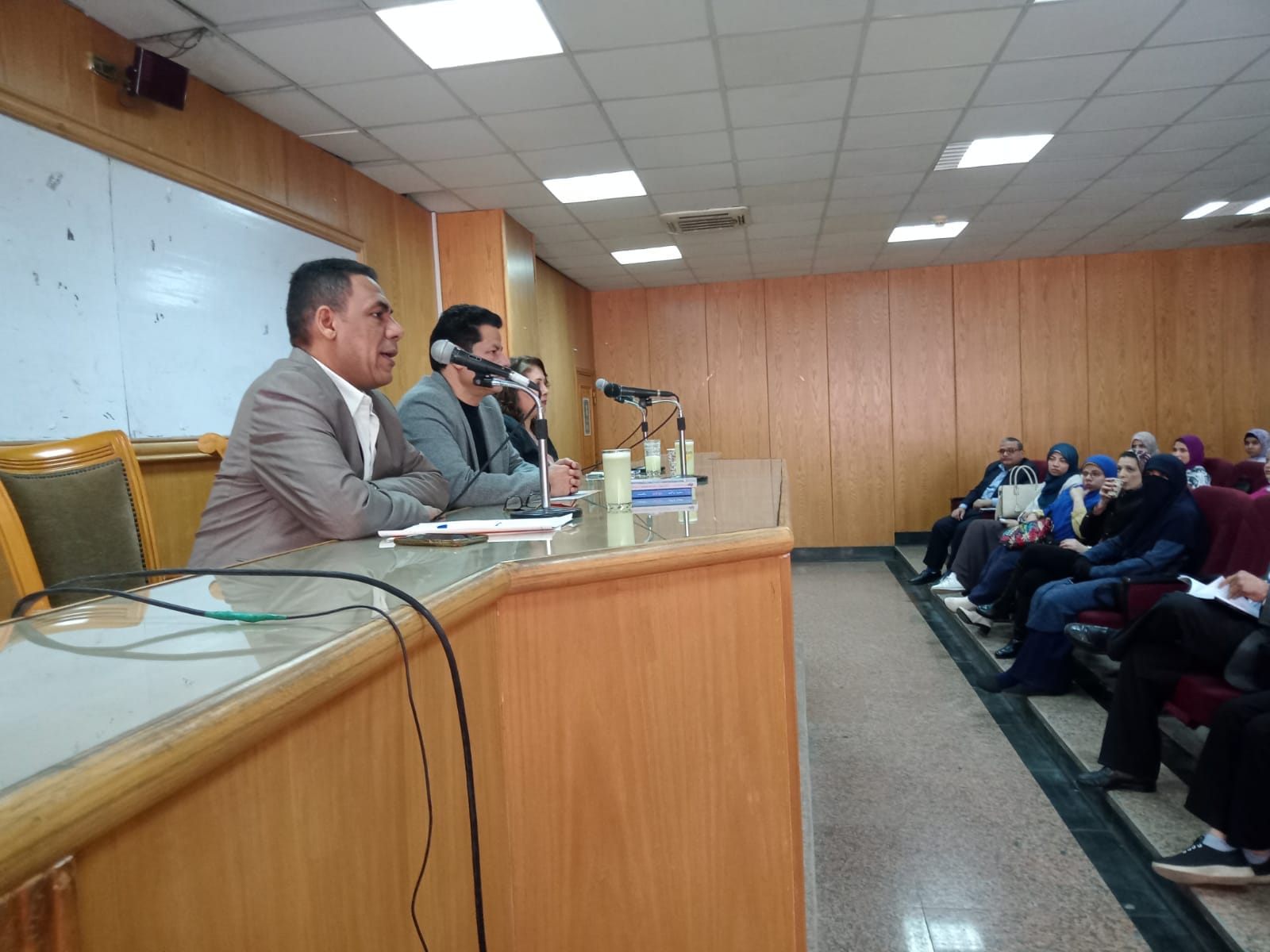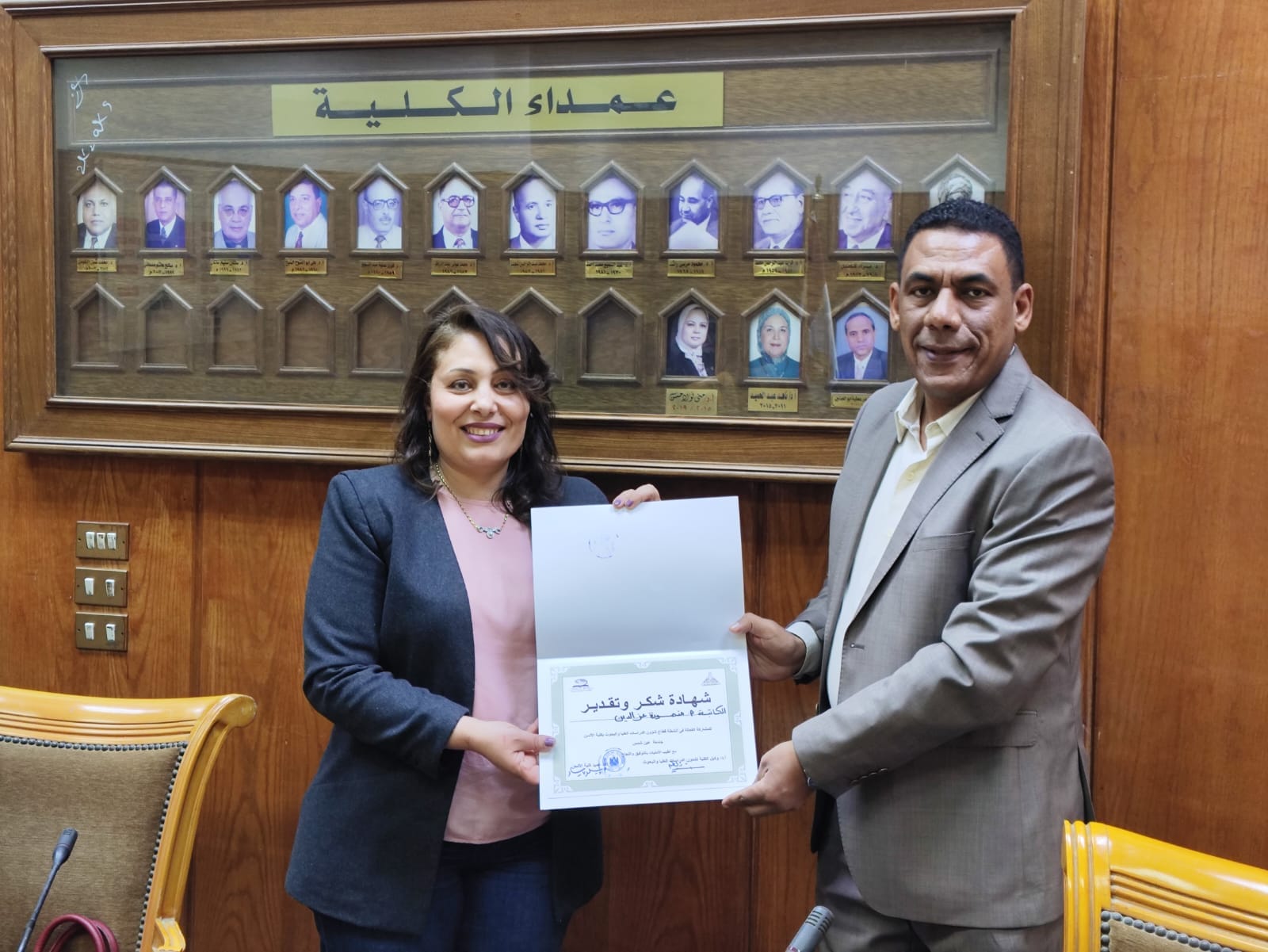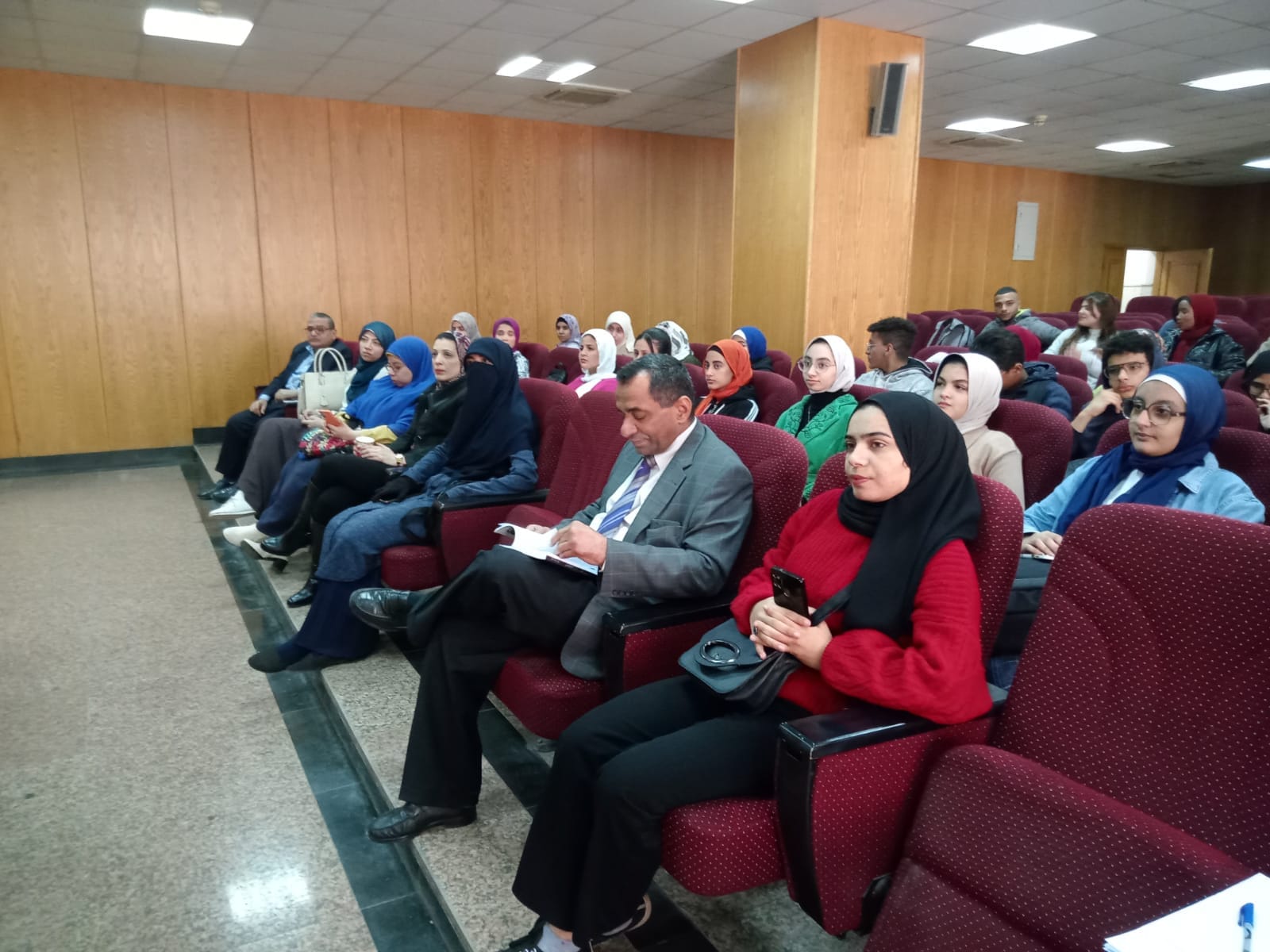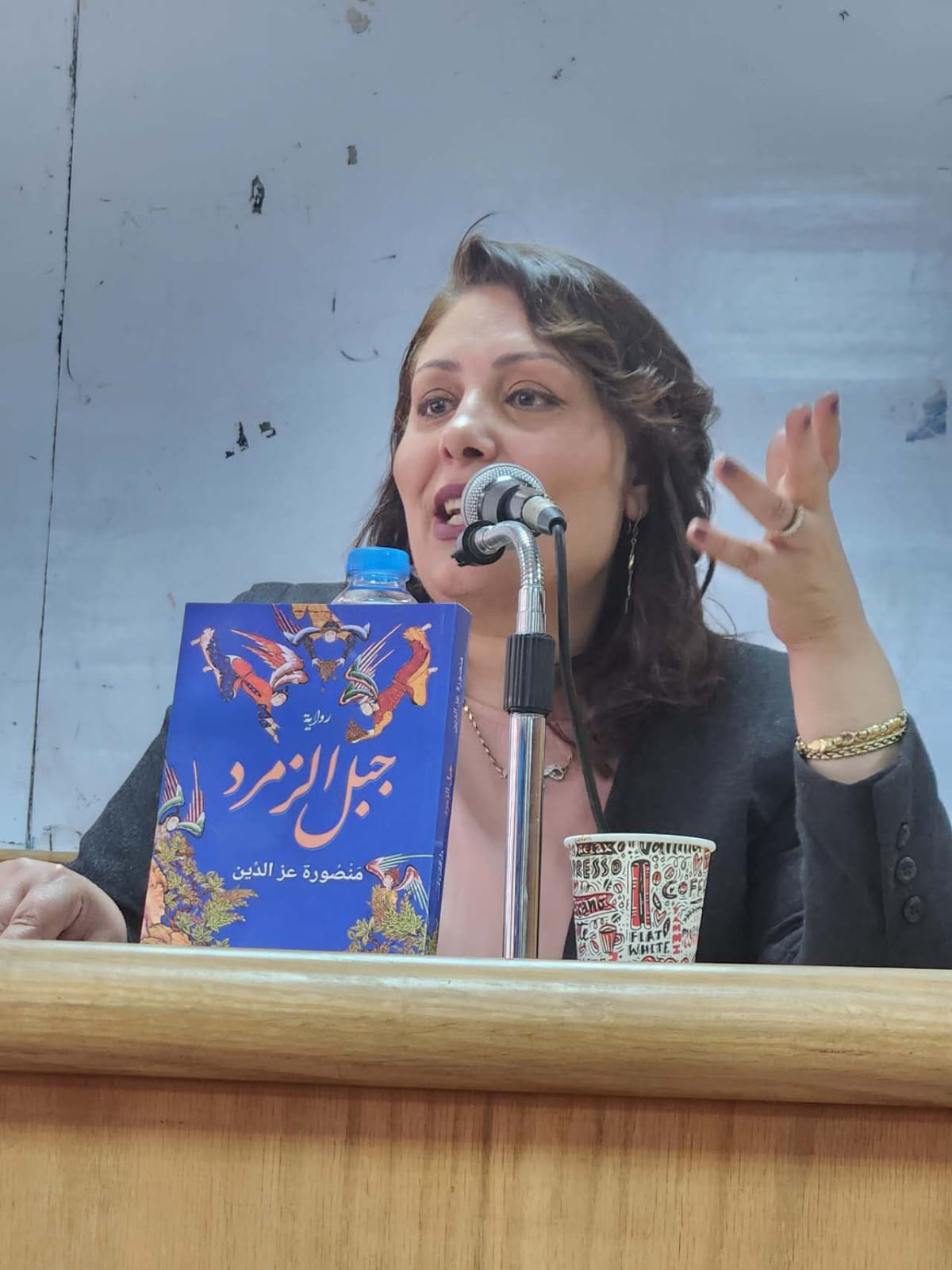“Translating the Arabic Literature into Other Languages... Available Horizons and Possible MeansSupport” ...a symposium at the Faculty of Al-Alsun
The Cultural and Foreign Relations Committee at the Faculty of Al-Alsun, Ain Shams University, organized a symposium entitled “Translating the Arabic Literature into Other Languages... Available Prospects and Possible Means of Support,” under the patronage of Prof. Salwa Rashad, Dean of the Faculty, and Prof. Ashraf Attia, Vice Dean of the Faculty for Postgraduate Studies and Research, and Prof. Hassanein Fahmi Hussein, Rapporteur of the Faculty’s Cultural and External Relations Committee. The faculty hosted the writer, novelist and Executive Editorial Director of Akhbar Al-Adab newspaper, Mrs. Mansoura Ezz El-Din, who presented a lecture entitled “Translating the Arabic Literature into Other Languages... Available Horizons and Possible Means of Support,” which witnessed a large attendance from the faculty staff, researchers, and students at the faculty.
At the beginning of the symposium, Prof. Hassanein Fahmy Hussein, by the writer and novelist Mansoura Ezzedine, is one of the most prominent names on the Egyptian and Arab literary scene. Her works have also been translated into many foreign languages, including English, French, Chinese, Persian, and others. Emphasizing the committee’s keenness to host Egyptian creators and intellectuals to introduce students and researchers at the Faculty to the Egyptian and Arab cultural scene, and to organize seminars and meetings that help them learn about the labor market in the field of translation and literary translation, and to introduce them to Egyptian and Arab cultural institutions and centers concerned with translation between Arabic and foreign languages.
 |
 |
At the beginning of the lecture, writer Mansoura Ezz El-Din thanked the administration of the Faculty of Al-Alsun and the Cultural Relations Committee for inviting her to this symposium, and praised the great and important role of the Faculty of Al-Alsun, Ain Shams University, in promoting cultural communication between Egypt and various cultures, and the clear and distinguished presence of the sons of Al-Alsun in the field of literary translation from various languages. To the Arabic language.
She added that she agrees with the saying that writers write local literature, and that international literature is the creation of the translator, because without translation, we would not have known any literature written in other languages, and this literature would remain local literature that only those who speak its language know, and she continued that there is a large presence of people of tongues. In translation from various international languages, at a time when we find few translations of Egyptian or Arabic literature into foreign languages.
She talked about the obstacles that stand in the way of Egyptian or Arabic literature reaching the world, most notably the lack of institutional support for the process of translation from Arabic into foreign languages.
 |
 |
She stressed the need to activate the role of the literary agent in Egypt, like what is done in European countries and even in Arab countries, stressing the necessity of pushing the movement of translating Egyptian literature into foreign languages so that the Egyptian voice is not absent.
She pointed out the importance of benefiting from exhibitions and conferences in which Egypt is a guest of honor in foreign countries, introducing Egyptian literary creativity and translating examples of the works of Egyptian writers.
Mrs. Mansoura also answered questions from the audience, including professors and students, about the reality of translating Egyptian and Arabic literature into foreign languages. And her commentary on what is translated from Egyptian and Arabic literature into foreign languages.
At the end of the symposium, Professor Dr. Hassanein Fahmi Hussein, the committee’s rapporteur, honored Professor Mansoura and handed her a certificate of appreciation from the graduate studies sector at the Faculty of Al-Alsun.
The symposium witnessed a large attendance from members of the Cultural and External Relations Committee, faculty members, supporting staff, researchers, and students at the faculty.


.svg)




